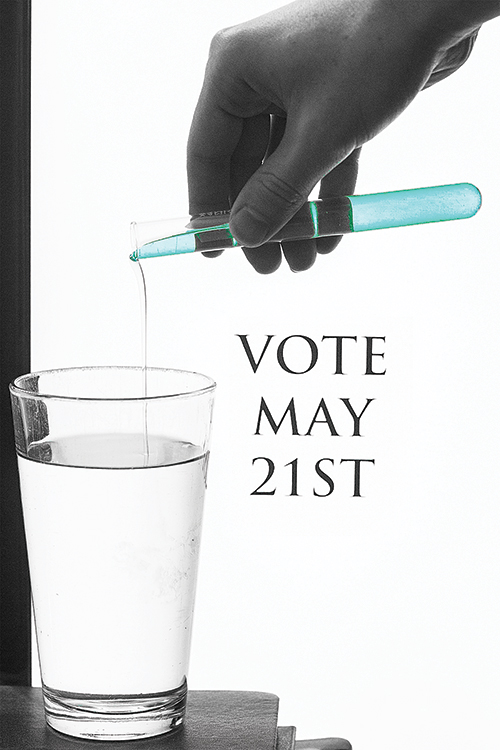Some of the ballot measures that have the most impact on voters’ lives are those conducted during the so-called electoral off-season, by which I mean the special election coming up on May 21.
The forgotten election

Some of the ballot measures that have the most impact on voters’ lives are those conducted during the so-called electoral off-season, by which I mean the special election coming up on May 21.
While these elections are mostly about area school boards, there are three ballot measures being put to the people that can have a major impact on how we live our lives. These three measures are: 26-150, which renews a levy to fight child hunger and abuse; 26-151, which asks whether Portland’s water supply should be fluoridated; and 26-152, a local levy to improve park and natural areas throughout the metro area.
Measure 26-150
According to the statement on file with the Multnomah County Elections Division, this measure is merely a continuation of the property tax levy that’s been in place since 2002. This levy supports 14,000 children with programs that range from providing nutritious food to funding after-school programs to providing foster children with services including academic assistance and mental health counseling.
The only drawback to this measure that I can see is that it’s a levy of $0.4026 per $1,000 of property value. Many homeowners may balk at this continued tax and choose to save themselves a little bit of money. However, I don’t foresee this being a major issue, given that the levy wouldn’t be increased and voters approved it in both 2002 and 2008.
Measure 26-152
This measure would create a dedicated capital fund for the improvement of the 16,000 acres of natural areas and parks under metro governance. This fund would be established by the creation of a new property tax of $0.096 cents per $1,000 of assessed property value.
Given that extensive natural areas are underdeveloped and underused, these funds could vastly improve the state of our parks and natural areas. According to estimates conducted by the filers of the measure, the increased tax would amount to approximately $20 per household, a small price to pay for our city’s parks.
Measure 26-151
The most contentious of the three ballot measures this election, the proposal to fluoridate the municipal water supply has drawn both support and criticism.
The Centers for Disease Control has noted that the fluoridation of drinking water is one of the 10 best innovations of the 20th century. The reasoning behind this is that the extra fluoride helps to prevent cavities in residents who don’t have access to regular dental care.
But there are many arguments against the fluoridation of our water supply. The most compelling argument I found is shared by the Sierra Club and the Columbia Riverkeeper, both of which say that the environmental costs far outweigh any potential health benefits.
The primary environmental cost would come from the increased amount of fluoride being introduced into the area’s waterways, namely the Columbia River. A press release from the advocacy group Columbia Riverkeeper quoted in the Statesman Journal stated, “The Columbia and many of its tributaries already have ‘an overload’ of toxic chemicals, and Portland has not adequately evaluated the impact fluoridation will have on salmon.”
While I don’t deny that fluoridating our drinking water may increase oral health, I can’t stand behind a measure that further endangers our local environment and its nonhuman inhabitants.






And, don’t forget the School Board races for Portland Public Schools. Even though there’s no direct impact on most PSU students, there could be on PSU staff – to find out more about the candidates, and have an opportunity to ask questions, there are some community forums. The next one is scheduled for April 10, from 7-9pm at Franklin High School, in SE Portland. The address for the school is 5405 SE Woodward St. The forum will be in the gym, and is sponsored by Franklin High School PTSA, and Cleveland High School PTA. (From PSU, you can get to Franklin on either the #9 Powell or #4 Division bus)
Cathy,
Thank you for noting the upcoming election also encompasses school boards. Given the fact that PSU is still largely a commuter university, I felt it more appropriate to focus on the city-wide measures. I strongly encourage all readers to participate in the selection of their individual school board members, especially because these are the people who will be helping to make the ever-important decisions about what our children will be taught.